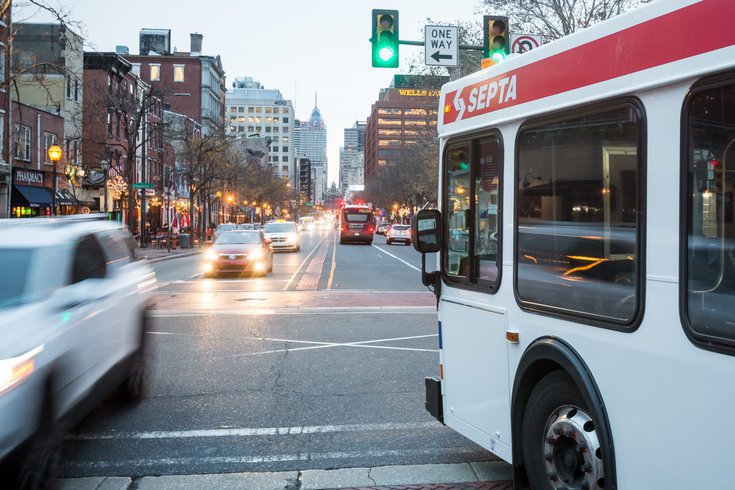
June 10, 2023
 Thom Carroll/for PhillyVoice
Thom Carroll/for PhillyVoice
SEPTA is testing a 60-day program using AI-driven cameras to detect violations of illegally parked vehicles in "bus only" lanes.
Vehicles parking illegally in bus lanes has been a problem on Philadelphia streets for decades.
To reduce cars from parking in front of bus stops or in "bus only" lanes, SEPTA has partnered with artificial intelligence company Hayden AI Technology for a pilot program to out some of its buses with a camera system that detects when vehicles are illegally parked.
Since April 20, the transit authority has monitored Center City bus lanes and stops along Chestnut Street and Walnut Street on its 21 and 42 routes by equipping seven buses with the tech.
The pilot program lasts 60 days; since its inception, SEPTA has found more than 20,000 violations, about 4,000 per week.
There have been no tickets issued during the program. The program costs SEPTA no money.
"SEPTA is excited to explore how new technologies can help improve safety on the system, as well as the overall customer experience," SEPTA General Manager and CEO Leslie S. Richards said. "This pilot program will help us better identify areas where we are seeing bus lane violations and look at possible solutions, particularly as we move forward with Bus Revolution."
In Philly, bus speeds average at eight mph, slower than national averages of 13-14mph, which adds to commuters' times and costs SEPTA money in its operating budget, it said. Annually, traffic congestion in Center City causes 1.7 million hours of passenger delay and adds $15.4 million to SEPTA's operating costs, according to a study.
"Bus service should be rapid, accessible, and safe to board, but illegal parking in dedicated transit zones makes this impossible," Chris Carson, CEO and co-founder of Hayden AI, said. "We've seen our technology help keep bus lanes clear for buses in New York and are excited to assist SEPTA with this technology pilot in Philadelphia."
Last year, Philadelphia police teamed up with SEPTA and the Philadelphia Parking Authority on an initiative to enhance the enforcement of bus lane restrictions in Center City.
Enforcement officers began issuing violations for parking or driving in a bus lane and making illegal turns on Chestnut Street from 6th to 23rd streets, Market Street from Sixth to 23rd streets, and JFK Boulevard between 15th to 19th streets.
Hayden AI's technology has been used on around 500 buses in New York City for the Metropolitan Transportation Authority (MTA). The camera technology, and ticketing enforcement, have led to more compliance with bus lane stopping and parking restrictions.
"We've seen our technology help keep bus lanes clear for buses in New York and are excited to assist SEPTA," Carson added.
For SEPTA to incorporate a similar program, City Council would have to authorize the camera enforcement of parking violations in bus lanes and at bus stops, the Inquirer said.